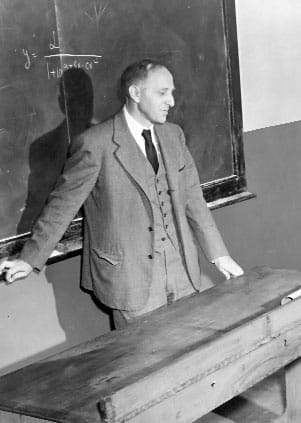 During World War II many academics put their ideas on hold for national interests.
During World War II many academics put their ideas on hold for national interests.
For economist Simon Kuznets the war effort was an opportunity to put his ideas—and ideals—into practice. As associate director of the Bureau of Planning and Statistics at the War Production Board, Kuznets developed a massive “input-output” survey that reshaped munitions production by predicting demand. The adoption of his measure of Gross National Product further transformed the war economy.
A Nobel Prize laureate (1971) for his novel—and sometimes controversial—economic empirical research regarding national economic growth, Simon Kuznets’ early Jewish education in Czarist Russia and exposure to social and economic movements ranging from Marxian-socialism to free enterprise prompted meticulous studies of social and technological ramifications on economies. Through his work on business cycles and disequilibrium aspects of growth, he is credited with helping launch development economics.
Born in 1901, Kuznets migrated to New York City in 1922. While studying for his doctorate at Columbia University, Kuznets worked with the great institutional economist Wesley Clair Mitchell, who administered Kuznets’ dissertation and invited him to join the National Bureau of Economic Research. Kuznets’ research on 15 to 20 business cycles was later called the “Kuznets Cycle.”
Kuznets joined Wharton’s faculty in 1931, where he began to develop national income estimates of the U.S. “In a field where theory was and is the be-all and end-all of intellectual accomplishment, Kuznets taught that the touchstone of achievement is insight into empirical reality,” wrote economist Richard A. Easterlin, GrW’53, in a 1997 issue of American Economist.
Kuznets’ book National Income and Its Composition, 1919–1938, published in 1941, is one of the most historically significant works on Gross National Product. His understanding of national economies became virtually unsurpassed as his new economic concepts were explored, debated, and implemented. In fact, he later tried to show the U.S. Commerce Department that the GDP isn’t always an authentic measure of a society’s well-being, sometimes upsetting opponents to his views and theories. Kuznets died in 1985.

























